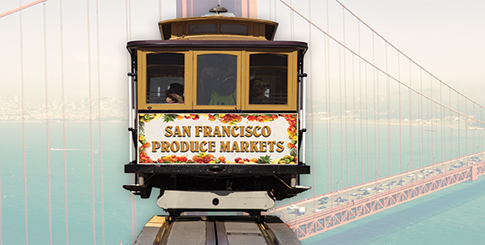Water and Labor Drying Up
Water and labor shortages are huge issues in the area, impacting not just produce businesses but all of California. “They’re calling it a permanent drought now,” Kyle Loveness, manager at J.C. Cheyne & Company, points out. “We used to get potatoes from California; now they’re mostly coming from Oregon, Washington, and Idaho. And there isn’t really a solution,” he contends, “just raising prices and rationing water.”
“Water is a hardship for farmers,” agrees Tombari, with many drilling wells to find more groundwater. The drought, he believes, will not only change how farmers grow, but what they grow. Labor is another part of the equation, with some growers not even planting or harvesting because of the lack of affordable workers. “The labor market is tight because the city has mandated minimum wages and all these fees; it makes it expensive to operate, and labor is tight because workers can make a lot money in jobs other than agriculture.”
There is some light at the end of this particular tunnel. Tombari says millennials are pushing “a new back-to-the-land movement” and are interested in growing organic produce. “That’s encouraging and maybe it’s a hopeful sign.”
In spite of the very real challenges of water and labor for California growers, the San Francisco produce scene is thriving with demanding customers who are both willing and able to pay for quality, organics, and innovation. This continues to drive the city’s markets with wholesalers finding their niches, and retailers and restaurants capitalizing on the quest for fresh, local, and specialty produce.
Images: my leap year & Rafael Ramirez Lee/Shutterstock.com



